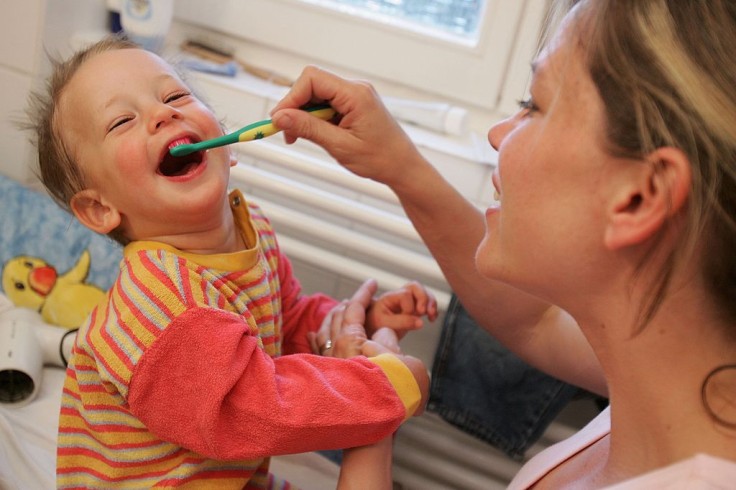
A recent study reveals that there is a type of yeast that can be transmitted from mothers to their infants, especially when mothers have high levels of dental plaque and tooth decay in young children.
The study, which was published in the journal PLOS One on January 17, reveals that mothers with substantial dental plaque are eight times more likely to pass the cavity-promoting yeast, called Candida albicans, to their newborns and infants.
Although infants can acquire Candida albicans from various sources, the research emphasizes a potential connection between a mother's oral health, particularly plaque accumulation, and the transmission of the yeast to their children.
Truths About Tooth Decay in Babies
The yeast, known as Candida albicans, commonly present in babies' healthy mouths, can contribute to oral thrush. Oral thrush is a result of mouth infections in infants caused by tooth decay, known as severe early childhood caries.
The study involved collecting oral samples from 160 mothers and their children over eight visits conducted from pregnancy to the child's second birthday.
Results showed that mothers with higher plaque levels were more likely to transfer Candida albicans to their babies. While the exact transfer mechanism remains unclear, potential points of exposure include delivery, skin-to-skin contact, and feeding.
The research highlights the importance of considering oral health in mothers to minimize the risk of yeast transmission to their children. However, it is noted that maintaining better oral health in mothers may not entirely prevent infants from carrying Candida albicans, but it could reduce the risk of associated diseases.
Other factors, such as bottle feeding at night and certain demographic factors, were also identified as potential contributors to yeast transmission.
The study calls for further research to monitor children's Candida albicans levels over time and assess the development of tooth decay.
The study underscores the need for parents to be aware of key oral health strategies for children, including early establishment of oral care habits, maintaining a dentist-approved diet, finding a trusted dental home and regular dental check-ups.
Additionally, the study suggests that preventing the transmission of cavity-causing bacteria is crucial, as parents can pass harmful oral bacteria to their children through various means, such as sharing utensils, kissing, and cleaning pacifiers orally.
The findings emphasize the significance of caregivers in oral health to reduce the risk of early childhood caries in young children.
How to Parents Can Prevent Cavities in Babies
A crucial way to help limit cavities, regardless of whether they run in your family, is to diligently brush and floss, which physically pushes bacteria, plaque, and sugar off the teeth.
Fluoride is an essential part of dental health because it not only restores calcium to decaying teeth but also limits the production of corrosive acid.
Even though some kids are at a much higher risk of developing childhood cavities, all children can get them. So, it's important for everyone to follow this road map for dental health.